George Stephen Taylor CText ATI
George Stephen Taylor 1938 – 2021
Stephen was born in Bolton and lived for most of his life at Holly Hill, where his father and grandfather had lived also, moving back to the house with his own family. He was the third generation of cotton spinner at Holdsworth Brothers, Bolton.
His school years were spent first at Gresham’s, Norfolk and then at Abbotsholme, Staffordshire; here education was on Gordonstoun principles and taught self-reliance and initiative. Following this, he attended Bolton Technical College and completed the 3-year course in Textiles in 1960 with a Diploma. He greatly appreciated classes with Sam Burtonwood, author of textbooks on textile procedures and theory.
Stephen joined the family firm, Holdsworth Brothers, spinners of cotton yarns for the hosiery business.
He expanded the customer base to include Jaeger, Smedley, White Swan, Pantherella and HJ among others, and enjoyed dealing with buyers and owners alike in person. Relationships with people were important to him and he insisted on personal contact for all major decision-making.
In 1964 he was awarded the CText ATI by The Textile Institute in recognition of his professional contribution.
When buying cotton he met Mr Andrew Herd of Liverpool on a weekly basis, and then Mr Bob Childs who succeeded him. The annual Liverpool Cotton Dinner was a highlight in his diary.
The efficiency of the mill was improved with the purchase of Swiss machinery and the intervention of Messrs Werner Associates who streamlined management methods.
The 1980s were difficult years due to the European Union’s transfer of support to industries on the periphery of Europe, making British yarns more expensive; the strength of the £ sterling was an added factor also. In 1990 the decision was taken to close the business, which was undertaken gradually over 2 years. Newer machinery was difficult to sell, but the older machines were sold to spinners in Bangladesh; the good quality stone went into new houses and the site was purchased by the Ford dealer.
Stephen started a new business as an agent for European yarns assisted by his wife, Elaine, a linguist; he continued to trade until the end.
Another textile connection was with Hesketh’s cotton mills, owned until the 1950s by his mother’s family; their speciality was fine counts using some Sea Island cotton. In 2000 Stephen made the acquaintance in Barbados of Roy Ward whose family had long held plantations and had grown the best quality of Sea Island cotton. He greatly enjoyed exploring the plantations and the island’s history on regular visits to Barbados.
An interesting and amusing storyteller, Stephen brought to life many incidents of life in the mill, life and work now in Lancashire’s past.
His interests included life-time support of the Bolton Wanderers football team; playing chess and snooker with friends; acting as Trustee of Nathaniel Hulton’s charity, founded in the 17th century by a Bolton trader for the benefit of local schoolchildren; acting as a Trustee and council member of Lancashire Gardens Trust with his special interest in awarding grants to students of landscape.
He was a devoted family man, leaving a wife, a son and 2 daughters and 5 grandchildren.
The Textile Institute World Conference
This event is held at exciting and relevant locations around the globe and is in an important meeting point for the textile industry and members worldwide. The social events associated with the conference bring together the global community to enjoy the host country’s culture and hospitality.






